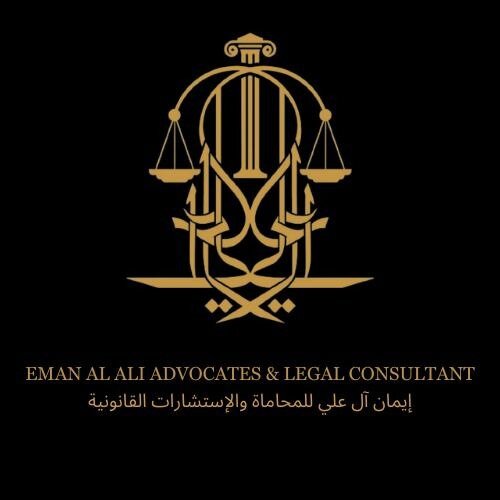Best Sanctions & Export Controls Lawyers in Dubai
Share your needs with us, get contacted by law firms.
Free. Takes 2 min.
List of the best lawyers in Dubai, United Arab Emirates

Mohamed Eid Al Suwaidi Advocates & Legal Consultants
30 minutes Free ConsultationAbout Sanctions & Export Controls Law in Dubai, United Arab Emirates
Sanctions and export controls law in Dubai, United Arab Emirates, plays a crucial role in governing international trade, investments, and cross-border transactions. Sanctions are legal restrictions imposed by a country or collective entity (such as the United Nations) to restrict activities with defined countries, entities, or individuals, often for political or security reasons. Export controls regulate the transfer, sale, or shipment of certain items, technology, or services to designated destinations or persons, often to prevent proliferation, protect national security, or comply with international agreements. In the UAE, and Dubai specifically, these regulations are strictly enforced due to the country’s strategic location as a global trade hub and its commitments to international obligations.
Why You May Need a Lawyer
Legal expertise is often required in the field of sanctions and export controls due to the complexity, technicality, and severity of potential penalties. You may need a lawyer if you are:
- Operating a business involved in importing or exporting goods, technology, or services
- Conducting international financial transactions or investments
- Uncertain about compliance requirements for trade with certain countries or entities
- Subject to investigations, audits, or enforcement actions by UAE authorities or foreign partners
- Concerned about potential liability for sanctions breaches, even if accidental
- Dealing with frozen assets or blocked funds due to regulatory action
- Negotiating contracts with international parties from high-risk jurisdictions
- Handling goods or technology that may be classified as dual-use or controlled items
A specialized lawyer can help you interpret relevant laws, conduct risk assessments, draft or review compliance procedures, represent you with authorities, and minimize exposure to fines, criminal liability, or reputational harm.
Local Laws Overview
Dubai implements export control and sanctions regulations both at the federal UAE level and in line with the emirate’s own regulations. Key legal sources include:
- UAE Federal Law No. 13 of 2007: Regulates import, export, and re-export of strategic goods, including military, dual-use, nuclear, and technology items.
- Cabinet Decision No. 50 of 2020: Details the activities, technologies, and products that are controlled under strategic goods law.
- Central Bank regulations: Enforces compliance for financial institutions with international sanctions such as the United Nations Security Council (UNSC), including restrictions on transactions with designated individuals or entities and freezing of assets.
- Ministry of Economy and Ministry of Foreign Affairs notices: Regularly issue notifications regarding updates to sanctions lists and export control measures.
- Dubai Customs and Dubai Multi Commodities Centre (DMCC) regulations: Oversee compliance for goods and services passing through Dubai’s free zones and ports.
Violations of these laws can result in severe penalties, including heavy fines, seizure of assets, revocation of licenses, and even imprisonment. Given Dubai’s reputation as a major trade hub, authorities perform strict checks and enforcement.
Frequently Asked Questions
What are economic sanctions in the UAE?
Economic sanctions are legal restrictions imposed by the UAE government or international bodies to restrict trade or dealings with specific countries, organizations, or individuals for reasons such as national security or foreign policy.
What is considered a controlled or strategic good?
A controlled or strategic good is any item, technology, or software that has military, nuclear, or dual-use potential and is listed under UAE regulations for special oversight before it can be exported, imported, or re-exported.
Who enforces sanctions and export controls in Dubai?
Enforcement is carried out by entities such as the UAE Federal Customs Authority, Dubai Customs, the UAE Central Bank, Ministry of Economy, and the Ministry of Foreign Affairs, depending on the area of control.
What is a dual-use item?
Dual-use items are goods, software, or technology that can be used for both civilian and military applications, and they often require special permits for export or import.
Do I need an export license for every shipment?
Not every shipment needs a license. Export licenses are required for controlled goods, destinations subject to restrictions, or if goods appear on strategic goods lists. A legal expert can advise you based on your specific situation.
What penalties can result from violations?
Penalties can include heavy fines, suspension or revocation of business licenses, confiscation of goods, freezing of assets, and imprisonment depending on the violation's nature and severity.
How do I check if my customer or partner is subject to sanctions?
Businesses should regularly screen customers and partners against lists published by the UAE government, UN Security Council, and other relevant bodies. Legal counsel can help with due diligence procedures.
Can a company be liable for unintentional violations?
Yes, both intentional and unintentional violations of sanctions or export controls can attract penalties. The law places significant importance on due diligence and compliance.
Are there special regulations for financial transactions?
Yes, banks and financial institutions must comply with sanctions lists and may be required to block or report transactions linked to sanctioned entities. This also applies to businesses handling international funds transfers.
What should I do if I suspect a sanctions or export control issue?
You should immediately consult with a legal expert to assess the risk, cease any potentially infringing activity, and cooperate with authorities as necessary. Acting quickly can help mitigate potential penalties.
Additional Resources
If you need further information or support, consider the following resources:
- UAE Ministry of Economy: Offers regulations and guidance on strategic goods and export controls.
- Federal Customs Authority: Oversees movement of goods across UAE borders and provides information on import-export requirements.
- Central Bank of the UAE: Publishes updates and compliance instructions for financial sanctions and anti-money laundering obligations.
- Dubai Customs: Offers guidance, licensing support, and compliance checks for goods entering or leaving Dubai.
- Ministry of Foreign Affairs: Provides updates regarding international sanctions regimes and lists of sanctioned entities.
- Reputable law firms and compliance consultants: Many entities in Dubai provide training, due diligence screening, and compliance audits for businesses in high-risk sectors.
Next Steps
If you believe you require legal advice or assistance related to sanctions and export controls in Dubai, United Arab Emirates, you should:
- Gather all relevant documents, contracts, licenses, or correspondence regarding the goods or transactions in question.
- Identify the specific countries, parties, or goods you are dealing with to assist in risk assessment.
- Consult a qualified lawyer specializing in sanctions and export controls to review your case and provide tailored advice.
- Implement any recommended compliance procedures, staff training, or corrective actions suggested by your lawyer.
- Cooperate fully with any inquiries from authorities, ensuring transparent and timely responses with legal representation.
Taking a proactive approach to compliance and seeking specialist legal support are the best ways to avoid costly penalties and protect your business interests in Dubai.
Lawzana helps you find the best lawyers and law firms in Dubai through a curated and pre-screened list of qualified legal professionals. Our platform offers rankings and detailed profiles of attorneys and law firms, allowing you to compare based on practice areas, including Sanctions & Export Controls, experience, and client feedback.
Each profile includes a description of the firm's areas of practice, client reviews, team members and partners, year of establishment, spoken languages, office locations, contact information, social media presence, and any published articles or resources. Most firms on our platform speak English and are experienced in both local and international legal matters.
Get a quote from top-rated law firms in Dubai, United Arab Emirates — quickly, securely, and without unnecessary hassle.
Disclaimer:
The information provided on this page is for general informational purposes only and does not constitute legal advice. While we strive to ensure the accuracy and relevance of the content, legal information may change over time, and interpretations of the law can vary. You should always consult with a qualified legal professional for advice specific to your situation.
We disclaim all liability for actions taken or not taken based on the content of this page. If you believe any information is incorrect or outdated, please contact us, and we will review and update it where appropriate.
















